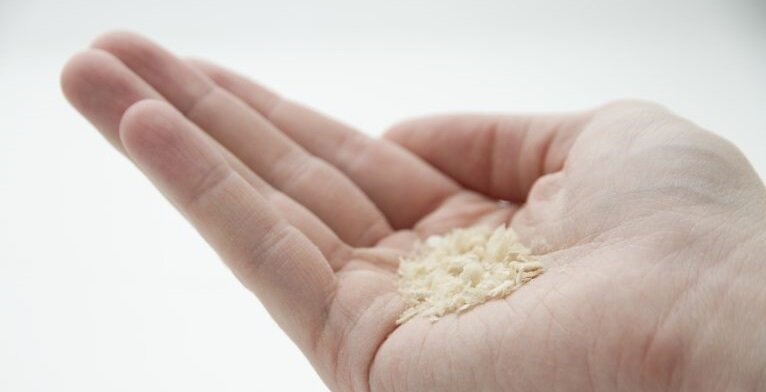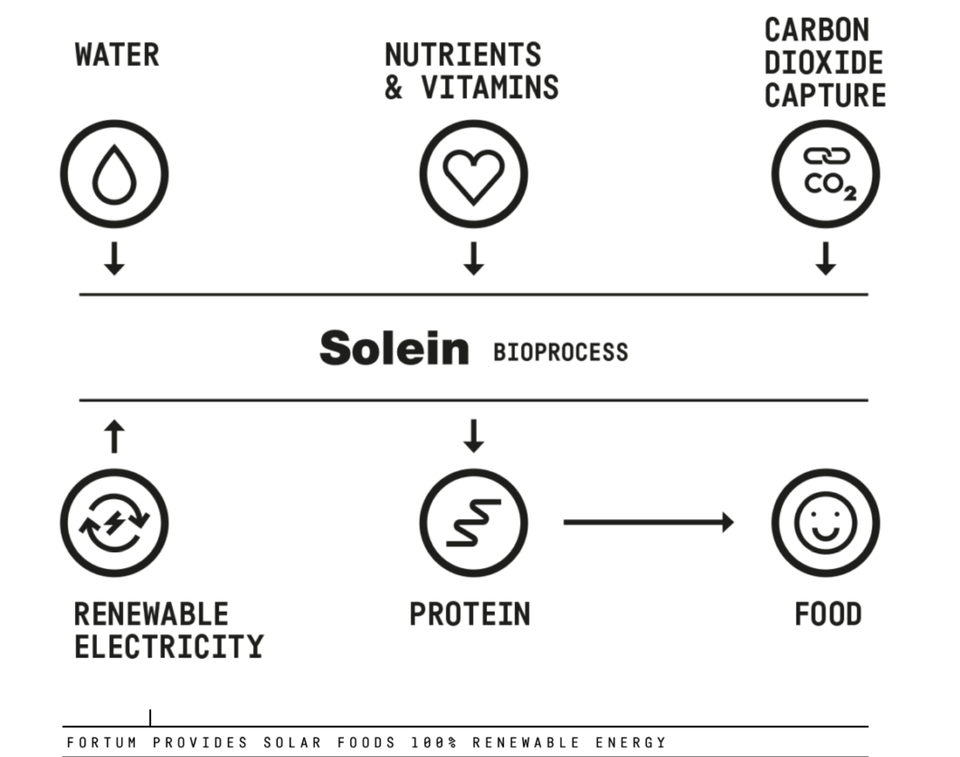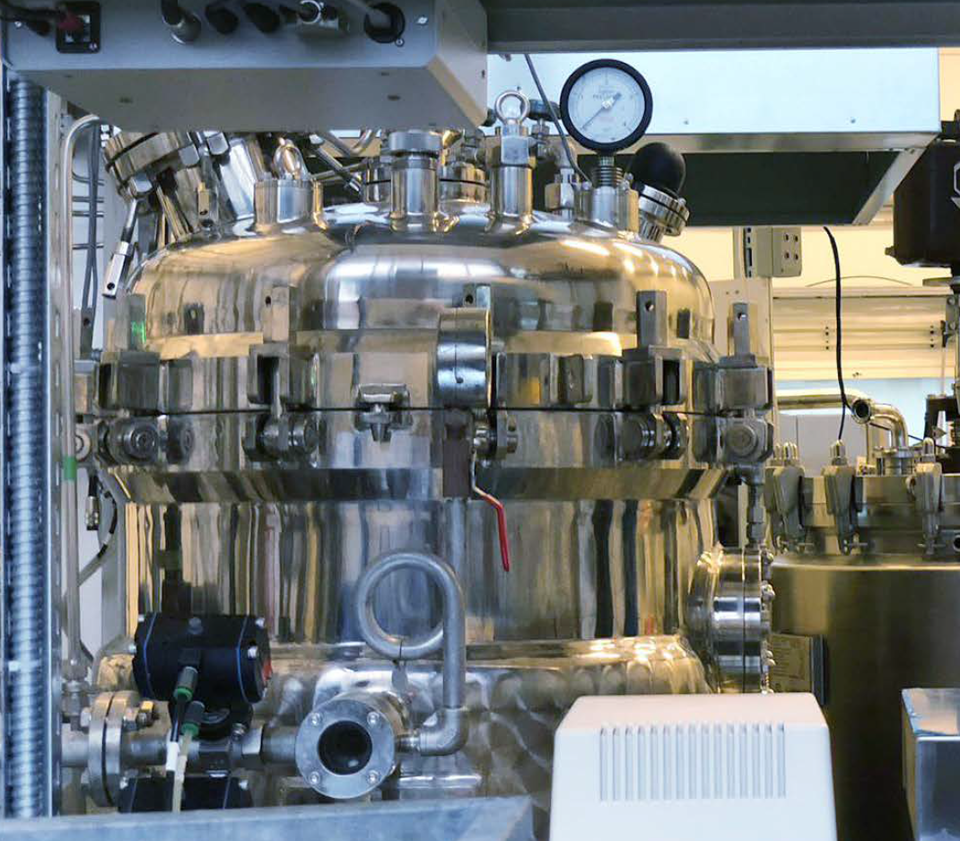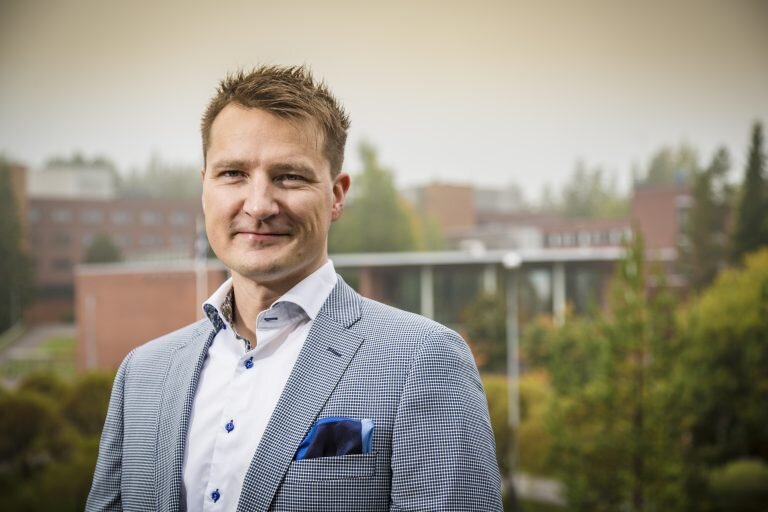Food out of the thin air
ESA BIC Finland start-up Solar Foods will revolutionize food production with a method that is not dependent on agriculture, the weather, or the climate, producing protein out of air and electricity. Prime target is for sustainable food generation on Earth, but could also be used for Mars missions. Meet Solar Foods at SMART SPACE in Toulouse 3-5 June.

The method is able to produce sustainable and pure single-cell protein from CO2 using electricity, requiring only carbon dioxide, water and electricity, combined with a small amount of trace elements.
Next, the goal for Solar Foods is to develop a concept for producing proteins for space flights to Mars.
The natural Protein Revolution
Solein, invented by Solar Foods, is a revolutionary natural protein source for the global food industry: suitable for varied consumer diets, and virtually for all food products and types.

Solein, invented by Solar Foods, is a revolutionary natural protein source for the global food industry: suitable for varied consumer diets, and virtually for all food products and types. An innovation created by leading cleantech expertise of Finland and based on a concept by NASA, the unique and pure single-cell proteins of Solein are produced from CO2, water, and electricity.

Independent from weather and irrigation, Solein is an unlimited protein source that is free from agricultural limitations and the boundaries of imagination.
The bioreactor production tank is a small, lightweight device that makes a process for producing food in space possible.
The journey to Mars takes several months, and success requires the ability to produce food during both outbound and inbound flights, as well as on the planet itself.

Solar Foods` CEO Pasi Vainikka explains, “The method of Solar Foods for producing protein arose from a desire to produce food in a more environmentally-friendly way, without using land.”
“The concept is not dependent on agriculture, weather or climate; instead, it makes possible efficient and low-cost food production with solar energy anywhere, whether in a desert or in space.”
The start-up company Solar Foods has teamed up with ESA Business Incubation Centre (ESA BIC) Finland to develop a concept for food production in space conditions and for missions to Mars. The Solar Foods business is not only for astronauts or going to Mars, but the same methodology will be used on Earth.
“The conditions in Mars colonies are very different from those on Earth, but they have sunshine, and there are huge amounts of carbon dioxide in the planet’s atmosphere,” says Kimmo Isbjörnssund, Manager at ESA Business Incubation Centre Finland.

“The pioneering technology of Solar Foods enables a new way of producing food even in closed spaces. We assume that ingredients available at the Mars base can be used with the new technology.”
Solar Foods aims to start commercial protein production on Earth in 2021. In the testing phase, the technology has met expectations, and small amounts of protein have been produced from air with the help of electricity.
“We are starting test production in Finland, and are applying to the European Food Safety Authority for approval as a novel food whose testing will take two years,” says Solar Foods` technology director Juha-Pekka Pitkänen.
“At the same time, we will begin testing the production of consumer products with our partners and design the full scale factory with 1,000 tonnes annual production capacity.”

“Our goal is to develop the protein into a high-quality product whose environmental impact will be 10-100 times smaller than those of meat products or their substitutes currently in the market,” adds Pasi Vainikka.
The production method is based on research initiatives of VTT Technology Research Centre Finland and Lappeenranta University of Technology.
Meet the Solar Foods entrepreneurs at ESA’s Business Applications Annual Conference SMART SPACE in Toulouse, France, 3- 5 June 2019, where they are available to present and discuss their revolutionary food production methodology.

SmartSpace - Your Business Powered by Space
The 9th edition of ESA’s Business Applications Annual Conference is jointly hosted by ESA Space Solutions, as well as CNES, in Toulouse (France) on 3rd – 5th June 2019.
The conference will bringing together agencies, industry, users, experts, entrepreneurs and investors to foster partnerships and inspire new ideas.
Thematic sessions focusing on smart finance, smart technologies, smart mobility, new space economy, smart health and smart resources.
Attend to find out about the latest developments in satellite applications, meet with technical and business experts, and create new contacts and exchange ideas with other attendees. Be inspired by demonstrations of successful services enabled by space and learn about funding and support opportunities from ESA and CNES.
ESA Business Applications and Space Solutions
ESA’s Business Applications and Space Solutions programme has a network of 20 ESA Business Incubation Centres, 15 ESA Innovation Partners and 14 ESA Ambassadors throughout Europe. It co-funds projects and start-ups, while also offering technical and business support to companies that seek to deliver rapid innovation and to raise private investment.
Overall ESA spends €400 million a year on strengthening the competitiveness of European and Canadian companies in the global markets for both satellite communications andr downstream applications.
ESA BICs - World's largest ecosystem for space-related entrepreneurship
The ESA Business Incubation Centre in Finland was founded in 2017 and it part of the wider network of 20 ESA BICs throughput Europe.
The 20 ESA Business Incubation Centres (ESA BICs) form the largest ecosystem in the world for space-related entrepreneurship and have fostered over 700 start-ups throughout Europe. Spread across some 60 cities in 17 countries, more than 300 start-ups are currently under the two-year business incubation development booster programme.
The centres offer complete access to all aspects of space-related innovation, technology and intellectual properties and is a gateway to ESA and European space research and developments. Located in Austria, Belgium, Czech Republic, Estonia, Finland, France, Germany, Hungary, Ireland, Italy, Norway, Portugal, Spain, Sweden, Switzerland, the Netherlands and UK, with more to open, over 700 start-ups have been fostered and another 180 new start-ups are taken in yearly to be supported under the two-years business development booster programme.



